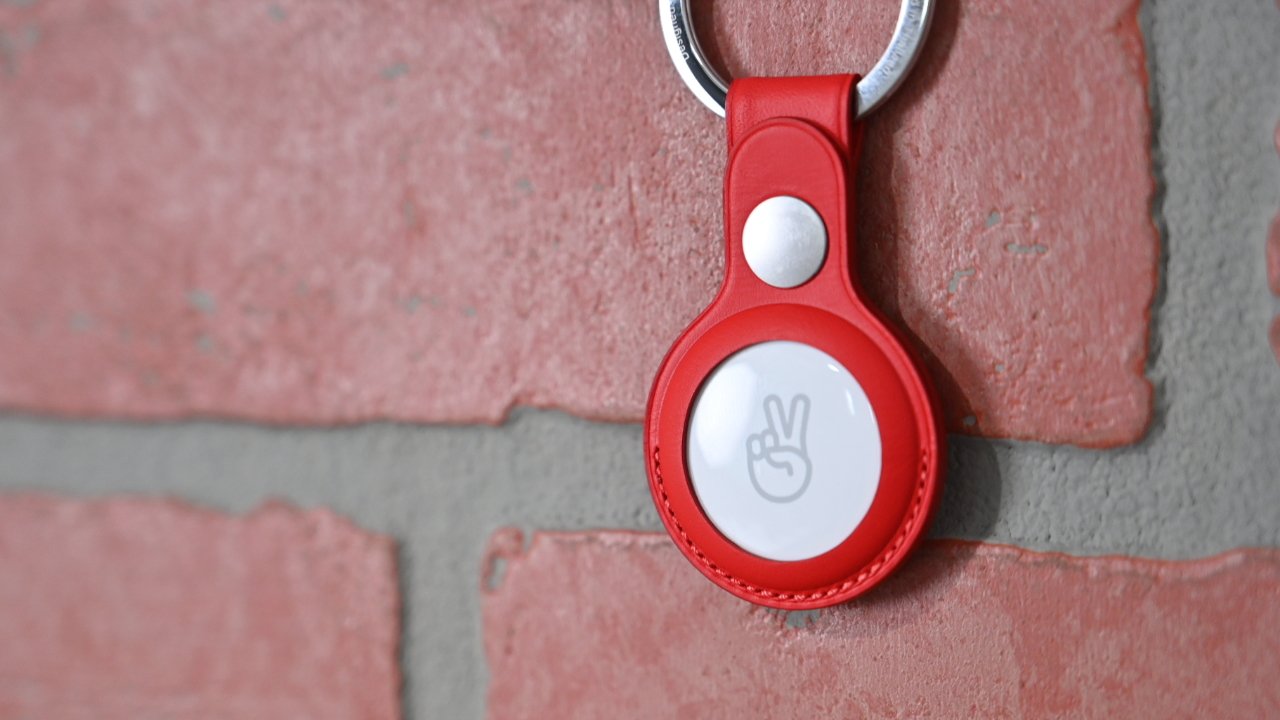If you're considering putting an AirTag on your dog's collar, don't — the risks outweigh the rewards.
Apple has been clear about whether or not you should use an AirTag to track a pet — and the answer is no. While attaching an AirTag to a pet's collar sounds like a good idea in practice, it would only help find them while inside the home network. If they ran away and got picked up by someone, the person finding the pet would need an updated iPhone or iPad nearby to ping the Find My network.
Even if they had an Android device to tap the AirTag for more information, they'd have to know that it was a capability in the first place.
So, while there have been times when an AirTag has helped return a lost dog, that doesn't mean it's a particularly good idea.
Still, that hasn't stopped countless numbers of accessory makers from creating AirTag-compatible collars, harnesses, and clips for doing just that. And it certainly has not prevented many well-intentioned pet owners from attaching an AirTag to their pets, either.
The Wall Street Journal has highlighted stories that exemplify why you shouldn't put an AirTag on your dog's collar.
One owner mentioned he had lost an AirTag that he'd previously attached to the collar of his dog Sophie. When he triggered the AirTag sound alert, he tracked the beeping to the stomach of his foster dog, Sassy.
Eventually, he got Sassy to throw the tracker up, and after purchasing a new AirTag holder, he reattached it to Sophie's collar.
Another couple had attached an AirTag to their dog, Rose, who proceeded to chew the device and ingest bits of metal and plastic while they were out of the house.
A trip to the vet showed that Rose had indeed eaten parts of the AirTag. Fortunately, the battery had not been ingested. The owner admitted that she'd thought it was a great idea without realizing the potential drawbacks.
Another owner wasn't so lucky. When her six-month-old puppy, Luna, ingested an AirTag, she took her to the vet. Unfortunately, after failing to get Luna to vomit the AirTag out, the animal hospital had no choice but to attempt surgery.
Unfortunately for Luna, the surgeon was unable to locate the AirTag and sent her home. Six weeks later, Luna eventually vomited up the AirTag on her own.
And it's not just Apple who warns against using AirTags to track your dog, either. Vets have warned pet owners against using AirTags to keep tabs on their pets.
Because AirTags contain batteries, there's a significant risk that they could leak and cause organ damage. The dangers of battery leaks increase if the battery has been damaged by chewing or if it sits in the dog's stomach for a long time.
Instead of putting an AirTag or other item tracker on your dog, it's better to get your dog microchipped, as most dog shelters and veterinarian offices can scan them to bring up your contact information. Also, be sure to keep your dog licensed and keep their dog tags on their collar or harness at all times.
It's also wise to practice preventative measures to avoid a dog escaping in the first place. Always keep your dog on a leash when not in fenced areas, and ensure everyone in your home knows to leave doors closed tightly when coming in and out of the house.
If you absolutely must use an AirTag to track your dog, ensure that you purchase a collar that holds the AirTag flush. Do not hang an AirTag from the collar where it could come loose or be pulled off by another dog.
 Amber Neely
Amber Neely







-m.jpg)






 Malcolm Owen
Malcolm Owen
 William Gallagher
William Gallagher

 Wesley Hilliard
Wesley Hilliard



 Christine McKee
Christine McKee




-m.jpg)




18 Comments
If it’s securely attached to the collar I don’t see a problem. Otherwise GPSc trackers would be
just as bad
This is nonsense. While there could certainly be isolated incidents where chewing or swallowing the air tag could hurt the dog, the potential benefits far outweigh these risks. I understand that Apple can't recommend it due to the potential liability for them, but there's no good reason why owners should take advantage of this new tech to track a lost dog.
This is silly. Nothing wrong with a dog collar designed to hold it properly.
This is pretty commonsense. The only real danger is risk of the dog chewing or swallowing it, no different from a small child. However, if people are competent, I see no reason to discourage people from attaching AirTags to their dogs - personally.
Anyone who has had a pet who disappeared would disagree. The microchips that vets implant are passive and have only a range of a few inches with a special reader so they can’t be used for tracking. Ideally for dogs a cellular GPS tracker like the Whistle Go Explore works best. Unfortunately cats require breakaway collars so trackers don’t tend to stay on them.